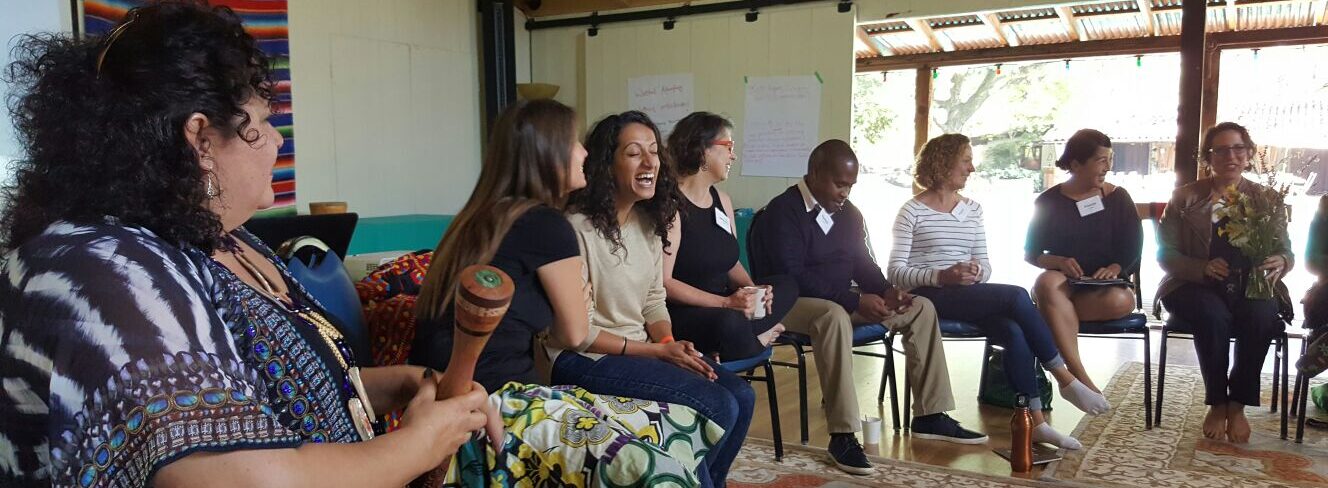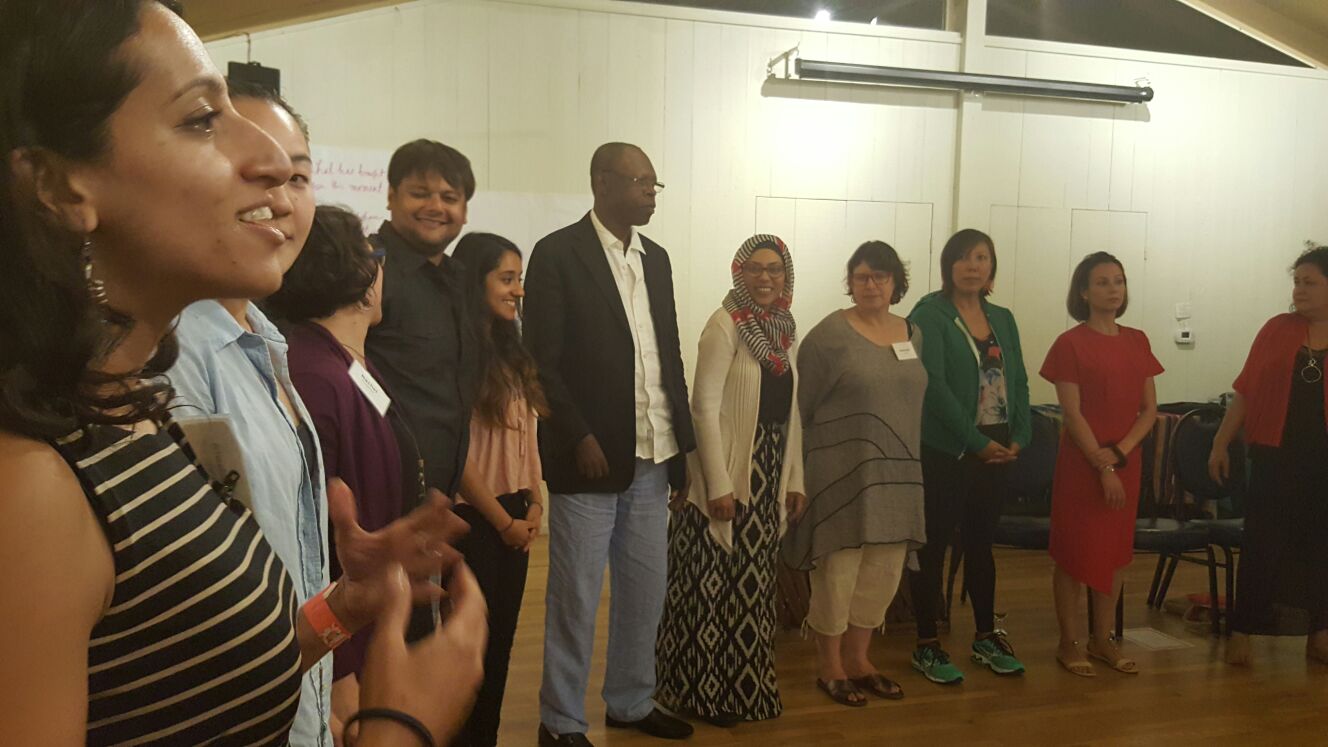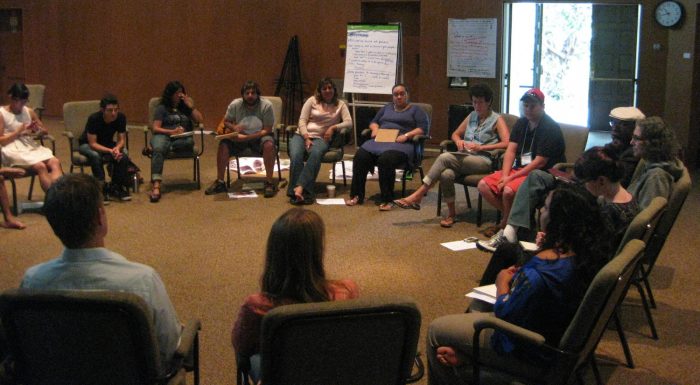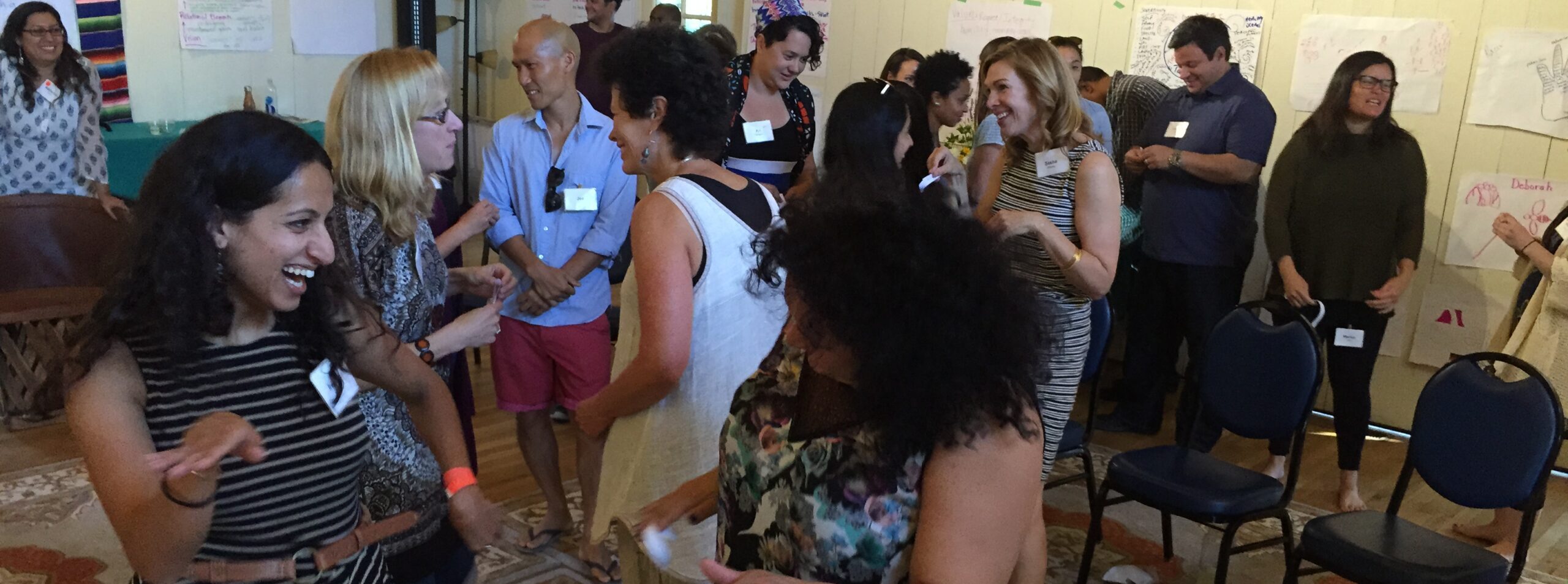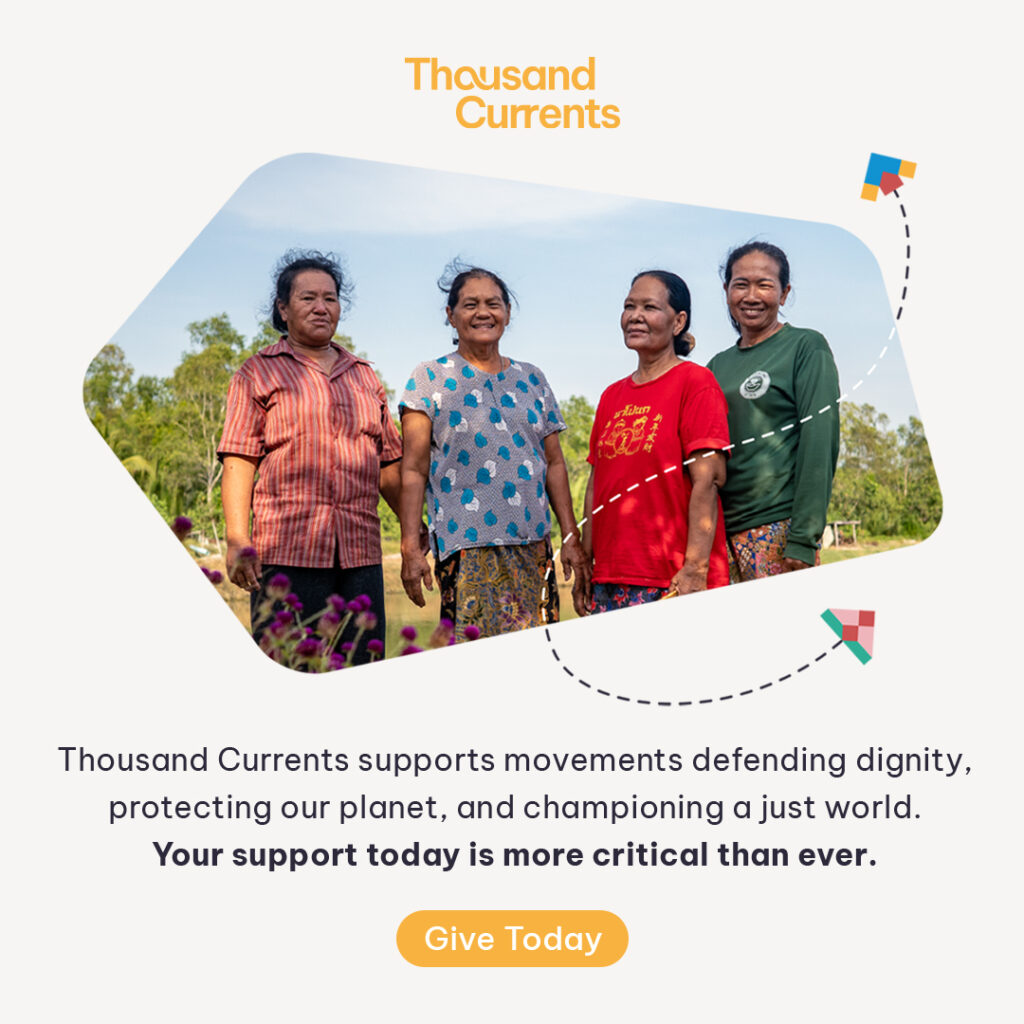The faculty consists of staff and board members of Thousand Currents, philanthropists, global thought leaders, frontline community organisers, local community leaders from around the world and indigenous leaders, as well as staff from private, public, family and corporate foundations.
Yes it’s the middle of wine country, yes it’s beautiful, and yes you’re eating the most delicious food from local sources in and around the ranch. Yes there is meditation, yoga and tai-chi, yes there are lessons by the pool and yes it’s beautifully sunny and warm. You have to share rooms with your fellow learners in beautiful log cabins and yes – the wine… it’s delicious! Aside from sounding like a blissful retreat, it also provides a space to truly leave your work tasks behind. You can reflect and really absorb, test and challenge the learning and practices you’re taking in.
The other attendees on my course were a truly global, and by the end, close-knit group – ranging from seasoned ‘professionals’ within the philanthropic sector, to those just beginning (like myself), to community organisers and a number of philanthropists.
This mix offers a unique chance to learn more about how everyone else views and organises philanthropy. Hearing from so many different contexts, examples and approaches gave me many ideas for how best to apply these within Stars and beyond.
This is not your ‘lecture and test’ type of course; it is an immersive learning experience where everyone present is a contributor. The academy staff provide context, scenarios and then help guide discussion within the group. There are great sessions where you hear from the seasoned pros, have Q&As with local community leaders who’ve led movements against large oil companies – and won – and indigenous leaders who offer alternative structures and thinking. It is not rushed – there is time to reflect, meditate, dance or just walk around the beautiful ranch. As much as I gained from the course context, I gained from discussions with my fellow participants and in moments where I had time to focus on my own challenges at work and think of new, more creative approaches.
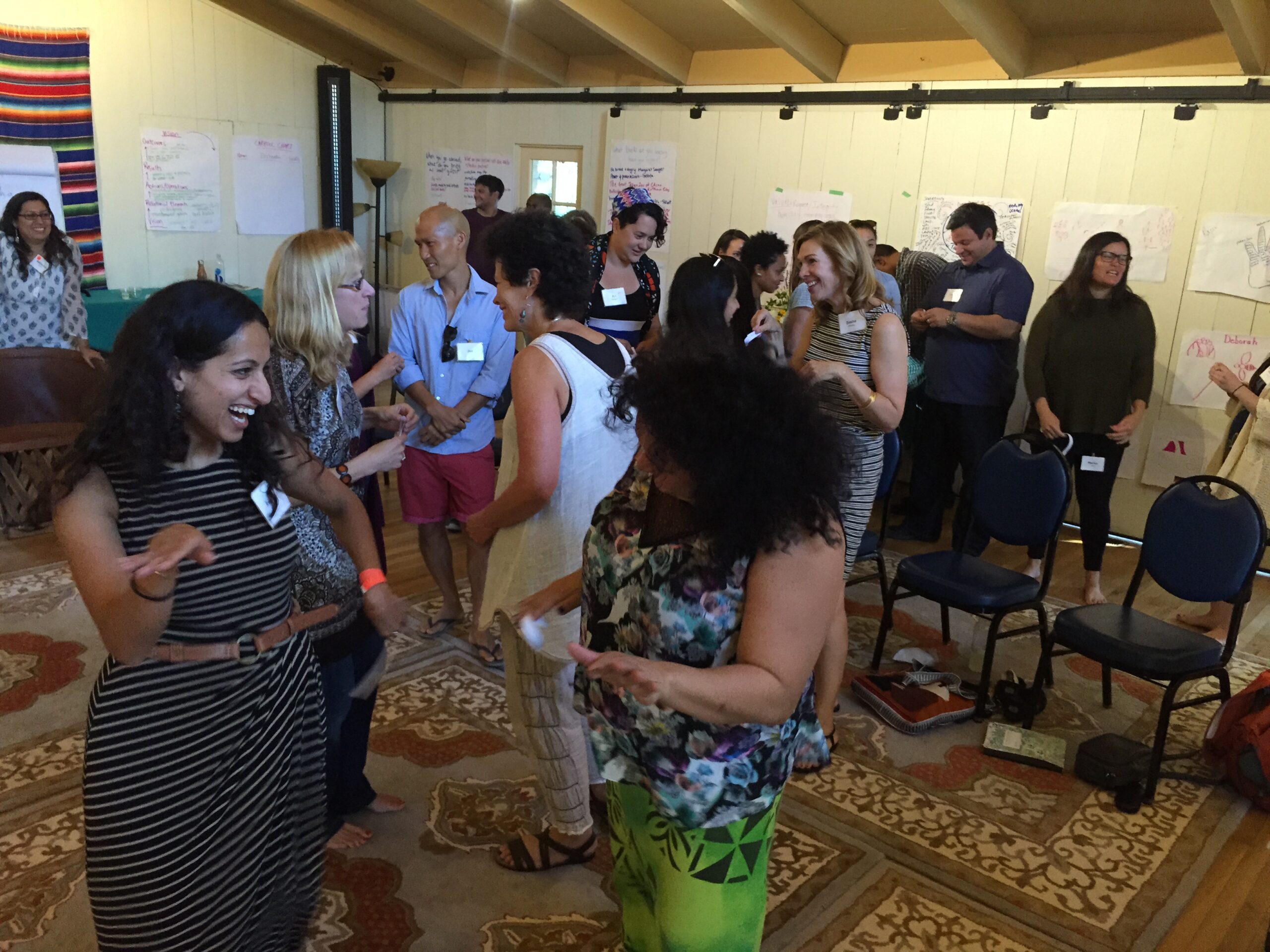
So how does it help my day job?
The course challenges you to re-think and overcome your own position of privilege.
Philanthropy, by its very nature, has an inherent and often negative power dynamic. The academy gives you access to so many viewpoints, allowing you to look at models of investment and grantmaking that challenges some of the neocolonial elements of development.
Wealth, and therefore power, traditionally sits in the West or Global North, so, for example, ‘we’ know best when we undermine a proposal and budget from an organisation in Bihar in India because the writing style is poor and it didn’t present a strong enough logframe for the impact it was making, or the fundraiser’s command of English wasn’t quite up the mark. This is probably why the majority of philanthropic funding rarely reaches local groups based in the countries we are trying to work in.
Stars Foundation has a model of supporting locally-led organisations with flexible and encourages all our partners to do the same. We also conduct our assessments in-country and in the local language where possible.
It helped me to understand how to counter the structural systems that make people oppressed and marginalised in the first place.
Funders often prefer to support INGOs, names we know or organisations that at least have representatives or offices in London, New York or a city near us.
Do we simply think that we can’t trust local/indigenous organisations, or that they just don’t get it? We rarely ask ourselves whether they trust us or think we don’t get it.
Through the Stars With and For Girls Collective, and despite having been established by eight well-known funders, we make sure the final decisions on who we fund are made by regional panels of adolescent girls. They interview the shortlisted organisations, they deliberate and they choose, ensuring we begin to shift the power and are led by those we most want to support.
I appreciated the benefits of seeing beyond a grantee/grantor relationship to one of true partnership.
The course reinforced for me that if we really want to make a difference and impact in the world we should be trying to address inequalities, not enforcing them. I cringe every time I visit a partner and they do a rehearsed presentation from the whole team and beneficiaries on how fabulous we are for funding their project and shower me with gifts. While I appreciate and thank their giving spirit, partnerships should be one of mutual trust, where we can admit our own shortcomings, seek to learn from one another and challenge each other’s approaches.
Philanthropy can either just provide short-term solutions – e.g. funding a new school in a local community – or it can invest in solutions that are responsive to local contexts and listen to local people. By doing the latter, we can understand the education requirements, local livelihoods situations, and residents’ access to essential resources. We can appreciate what children need and can support local leaders to design and build an education solution that is truly community-owned and sustainable. When we really listen and can be challenged by these partners – not in a tokenistic or self-serving model, but in a meaningful exchange for them beyond financial resources – we can truly support our own ambitions.
I understood the power of networks.
Analysis by CIVICUS shows that 3.2 billion people now live in countries where the conditions for civil society are severely repressed, with recent political shifts likely to add to the challenge. Having people and networks you can trust, partner with, learn from (and occasionally whine, cry and laugh with), becomes more and more essential.
The academy gives attendees a global network of thought leaders to test ideas with, lean on for support, help find new local partners, seek practical help, or receive advice on getting funding to hard-to-reach locations or groups. My fellow participants – or Impact Influencers – have become some of my closest friends. I regularly ask for their advice, share my own, or navigate to groups I want to reach through them. Attendees are also assigned a mentor who supports their personal growth – mine is a fierce Maori leader called Tania who helps me reflect and plan, build frameworks for monitoring our impact, makes me laugh, and taught me a Haka!
Not only are networks important for philanthropic organisations, they are essential for local leaders. Often local groups are rooted within their community and are strong at collaborating, but lack a global network of like-minded organisations they can work with, learn from, teach and stand in solidarity with.
I gained methods and ideas for creating a culture of continuous learning within my organisation.
I realised that if you don’t ever stop to really listen to your local partners, to really understand local environments and contexts, you’re never going to be able to invest in real locally-led solutions.
If you don’t listen to yourself and stop sometimes, you won’t ever have time for the reflection needed for those truly innovative and ‘a-ha’ moments you’re most proud of.
I would encourage anyone in a philanthropic organisation to head to the Academy. As well as giving you new insights and experiences it will introduce you to a set of new friends from all around the world. And the wine is fabulous too!
To learn more about the Thousand Currents Academy or to apply, see: thousandcurrents.org/academy/

